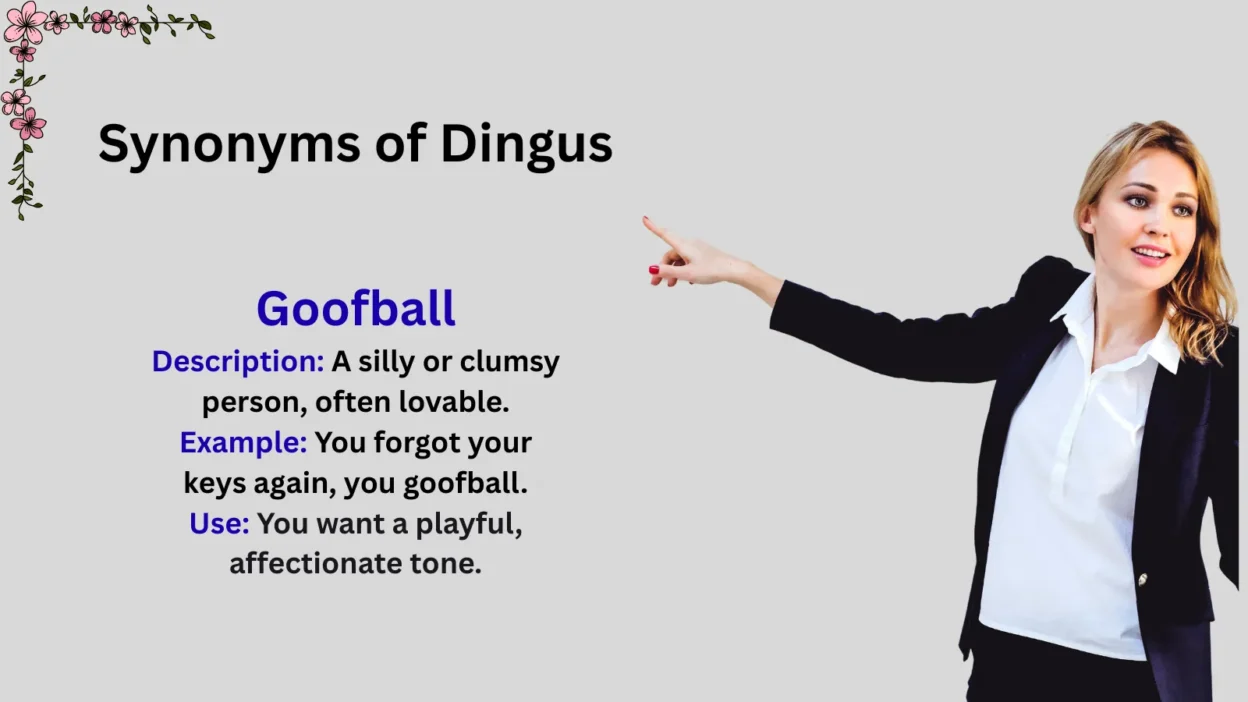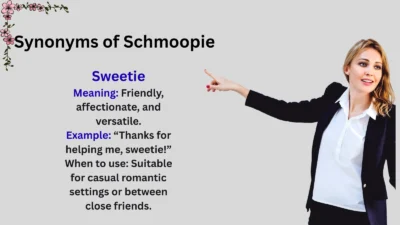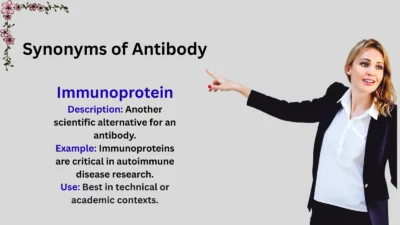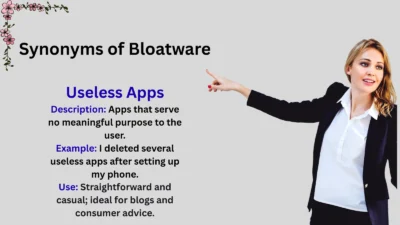Synonyms of dingus, such as goof, dummy, and doofus, reflect the playful and silly side of calling someone foolish or absent-minded. For example, “goof” suggests someone who makes funny mistakes, while “dummy” feels a bit sharper or teasing. These words capture different shades of humor, clumsiness, and lighthearted insults often used among friends.
If you’re writing about comedy, casual conversations, or character traits, using the right synonym helps you strike the perfect tone—funny, teasing, or affectionate. In this guide, we’ll explore the many ways to say “dingus” and when each fits best.
These synonyms of dingus not only make your writing more colorful but also show how language can turn simple teasing into charm. From slang to storytelling, the world of “dingus” is full of humor and personality.
What Does Dingus Mean?
Dingus is a slang term for a silly, clumsy, or slightly foolish person. It’s often used in a light or joking way rather than as a serious insult.
It can describe someone who:
- Makes funny or careless mistakes
- Acts goofy or absent-minded
- Brings laughter through small blunders
- Is teased with affection rather than judgment
Dingus isn’t mean—it’s playful. It’s a way to laugh with someone, not at them.
Synonyms & Related Words for Dingus (And When to Use Them)
1. Goofball
A silly or clumsy person, often lovable.
Example: “You forgot your keys again, you goofball!”
Use when: You want a playful, affectionate tone.
2. Nincompoop
A slightly old-fashioned term for someone foolish.
Example: “Only a nincompoop would try to microwave metal.”
Use when: You want humor with a touch of vintage charm.
3. Doofus
Clumsy or foolish, often lighthearted.
Example: “Don’t be a doofus—wear your helmet!”
Use when: Casual, friendly teasing.
4. Dork
Socially awkward or nerdy, sometimes endearing.
Example: “He’s such a dork for memorizing every movie quote.”
Use when: Friendly teasing about quirky behavior.
5. Dummy
Simple for someone who acted foolishly.
Example: “You left your phone in the fridge, dummy!”
Use when: Mild criticism without harshness.
6. Blockhead
Someone is stubborn or not thinking clearly.
Example: “Come on, you blockhead, that’s not how it works.”
Use when: Light irritation or playful scolding.
7. Bonehead
Similar to blockhead, highlighting a silly mistake.
Example: “You dropped the keys again, bonehead!”
Use when: Mildly critical, playful tone.
8. Clod
Clumsy or slow-witted, often physical.
Example: “Watch out, clod, you’re about to spill that!”
Use when: Slightly old-fashioned, humorous context.
9. Airhead
A forgetful or scatterbrained person.
Example: “You’re such an airhead; you forgot the groceries again!”
Use when: Lighthearted critique of absent-mindedness.
10. Twit
A British term for a foolish person.
Example: “Don’t be a twit, check the schedule first.”
Use when: Informal, playful, or slightly teasing.
11. Simpleton
Naïve or lacking common sense.
Example: “Only a simpleton would fall for that trick.”
Use when: Gentle mockery, more formal than dingus.
12. Lamebrain
Someone who makes foolish choices.
Example: “Stop acting like a lamebrain and focus!”
Use when: Playful insult among friends.
13. Goober
Silly or awkward, affectionate.
Example: “You little goober, you made cookies again!”
Use when: Friendly, playful situations.
14. Bungler
Someone who messes things up due to clumsiness.
Example: “He’s a real bungler in the kitchen.”
Use when: Light critique of incompetence.
15. Nitwit
A foolish person, often lacking sense.
Example: “You forgot your lines, nitwit!”
Use when: Playful but slightly sharper than dingus.
16. Fool
Classic and direct, highlighting foolish behavior.
Example: “Only a fool would ignore the warning signs.”
Use when: More serious, less playful tone.
17. Jokester
Silly in a fun, playful way.
Example: “You’re such a jokester at parties.”
Use when: Highlighting playful mischief rather than mistakes.
18. Knucklehead
An affectionately clumsy or stubborn person.
Example: “Don’t be a knucklehead and drive without your seatbelt.”
Use when: Casual, teasing tone.
19. Noodlehead
Funny and silly, not mean-spirited.
Example: “You forgot your shoes, noodlehead!”
Use when: Light, humorous teasing.
20. Sap
Naïve or easily fooled person.
Example: “You’re such a sap for believing that story.”
Use when: Gentle critique, slightly old-fashioned.
21. Dingbat
Silly, scatterbrained person.
Example: “You left the car lights on again, dingbat!”
Use when: Playful, casual setting.
22. Goon
Clumsy or foolish, sometimes physically awkward.
Example: “Watch where you’re going, goon!”
Use when: Slightly rougher, playful tone.
23. Muffinhead
Funny and whimsical, silly without insult.
Example: “You’re such a muffinhead for wearing socks with sandals.”
Use when: Cute, affectionate teasing.
24. Scatterbrain
Forgetful or easily distracted person.
Example: “Don’t be a scatterbrain; you’ll miss the meeting.”
Use when: Friendly critique of absent-mindedness.
25. Weirdo
Eccentric or unusual, sometimes affectionate.
Example: “You’re a total weirdo, but I love it.”
Use when: Highlighting quirky, oddball behavior.
26. Halfwit
Foolish person, slightly sharper tone than dingus.
Example: “Only a halfwit would skip studying for the exam.”
Use when: Gentle insult, not too harsh.
27. Cabbagehead
Rare, playful term for a silly or clueless person.
Example: “Stop acting like a cabbagehead and help me.”
Use when: Fun, whimsical contexts.
28. Boffin
Typically a British term, sometimes nerdy or absent-minded.
Example: “You forgot the lab results again, boffin!”
Use when: Humorous or lightly teasing intellectual context.
29. Muppet
British slang: a funny or incompetent person.
Example: “You’re a muppet for leaving the door unlocked.”
Use when: Informal, humorous criticism.
30. Fumblebum
Clumsy or awkward, especially physically.
Example: “He’s a fumblebum with the football, but he tries!”
Use when: Playful reference to physical clumsiness.
Choosing the Right Synonym
When selecting a synonym for dingus, consider:
- Tone: Do you want playful (goofball, noodlehead), affectionate (goober, muffinhead), or slightly sharper (halfwit, nitwit)?
- Formality: Words like nincompoop, simpleton, or sap can feel old-fashioned or literary.
- Cultural context: Some terms, like twit, muppet, or boffin, are more common in British English.
- Emotional context: Choose a term that matches your relationship with the person—affectionate teasing versus light criticism.
Conclusion
Dingus is a fun, playful word for a silly or clumsy person, but synonyms let you tailor your message to tone, audience, and cultural nuance. From goofball to muppet, each alternative brings a unique flavor—some humorous, some endearing, some lightly critical.
By considering context, emotional tone, and cultural use, you can pick the perfect word to match your intention, keeping your language fresh, expressive, and entertaining.
Whether you’re teasing a friend, writing dialogue, or just expanding your vocabulary, these synonyms give you the tools to add humor, affection, or playful critique with style.



